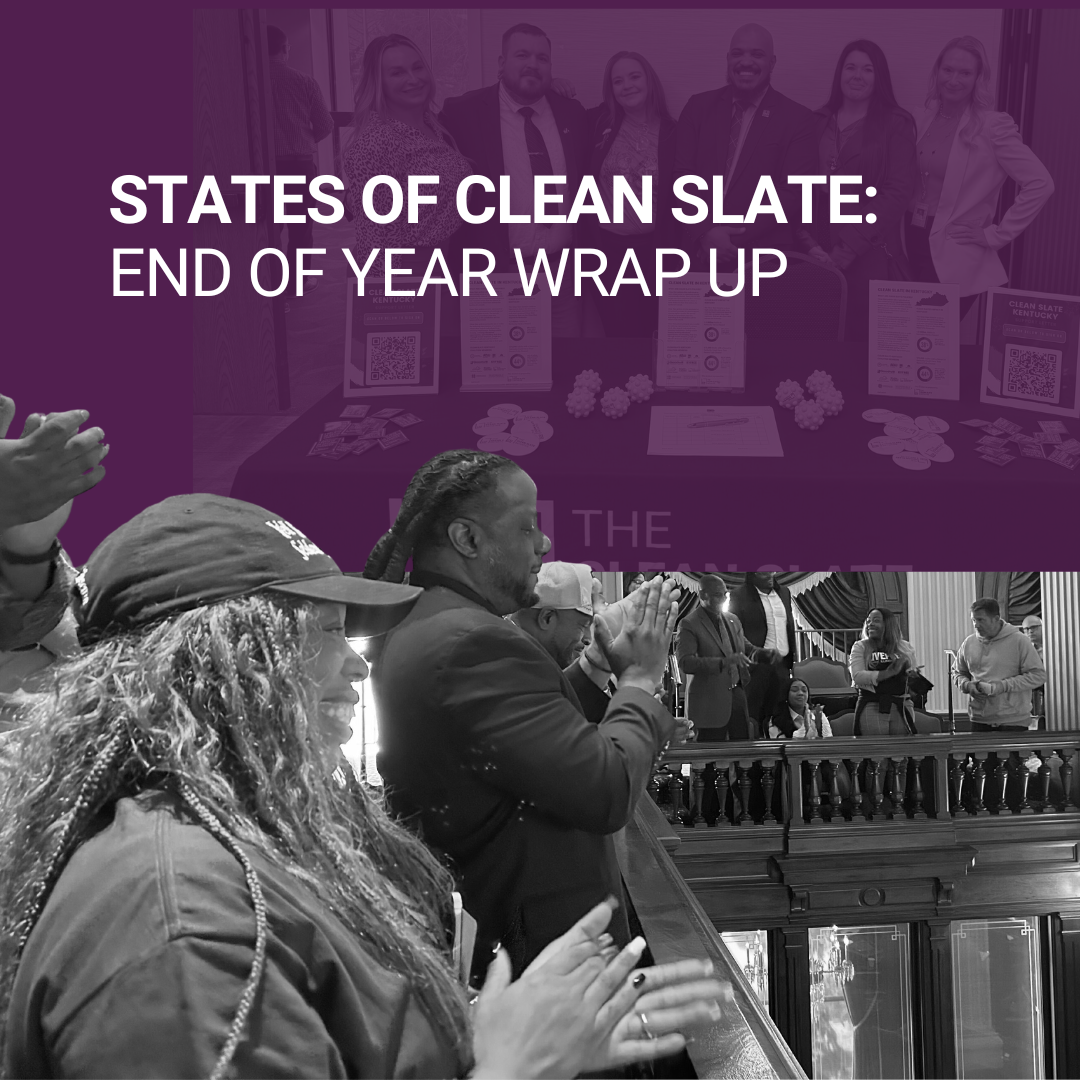Clearing the Path Forward: How Clean Slate Can Help LGBTQ+ Communities Move Beyond Barriers

Each June, Pride Month invites us to celebrate the resilience, joy, and power of the LGBTQ+ community. But even as we celebrate the power of Pride, many LGBTQ+ people across the country are facing barriers from old arrest and conviction records — some from laws that no longer exist.
These records don’t just reflect a moment in someone’s past. They often create roadblocks to housing, employment, safety, and belonging — especially for LGBTQ+ people who statistically face those barriers even without a record, making the impact of records compounded for these communities. Clean Slate laws, which automatically clear eligible arrest or conviction records, offer a chance at a more level playing field.
Haunted by the Past: Records from Laws That No Longer Exist
For decades, LGBTQ+ people were explicitly criminalized under laws that banned same-sex relationships, dressing in clothes that didn’t match their gender assigned at birth, or simply gathering in public. Though many of these statutes have been struck down, the records they created remain, showing up in background checks, affecting jobs, housing, and even someone’s ability to volunteer at their child’s school. They are a lasting reminder of the systemic discrimination LGBTQ+ people have faced, and they serve no legitimate purpose today.
Barriers on Top of Barriers: How LGBTQ+ Identity Compounds the Impact of a Record
LGBTQ+ people are overrepresented in the legal system — especially LGBTQ+ youth, transgender individuals, people of color, and those with disabilities. Those who carry records face steeper barriers to employment, housing, and healthcare. Not just because of the record itself, but because of anti-LGBTQ+ bias layered on top of record-based discrimination.
According to the Center for American Progress, LGBTQI+ people with records, particularly people of color, face significantly higher employment barriers. These intersecting identities compound barriers that block access to stability and opportunity.
Clean Slate: A Step Toward Healing and Equity
Automatic record sealing through Clean Slate policies can help break this cycle. By sealing eligible old records — especially for low-level, non-violent offenses — Clean Slate removes barriers that no longer serve public safety but continue to amplify inequality.
Clean Slate can help break barriers for LGBTQ+ communities by:
- Eliminating barriers to housing, employment, and education that disproportionately impact queer and trans people;
- Removing records tied to now-invalid laws that targeted LGBTQ+ identities; and
- Protecting trans and non-binary people from being “outed” during background checks that reveal names or charges inconsistent with their gender identity.
In short, Clean Slate helps restore privacy, dignity, and a fair shot at stability — something every person deserves.
Pride isn’t just about celebration. It’s about pushing for a world where LGBTQ+ people can live free from criminalization, stigma, and systemic harm. Clean Slate laws are a vital part of that vision. They acknowledge that people are more than their records, and that our laws must evolve to reflect dignity, justice, and inclusion.
.avif)
.avif)

.png)
